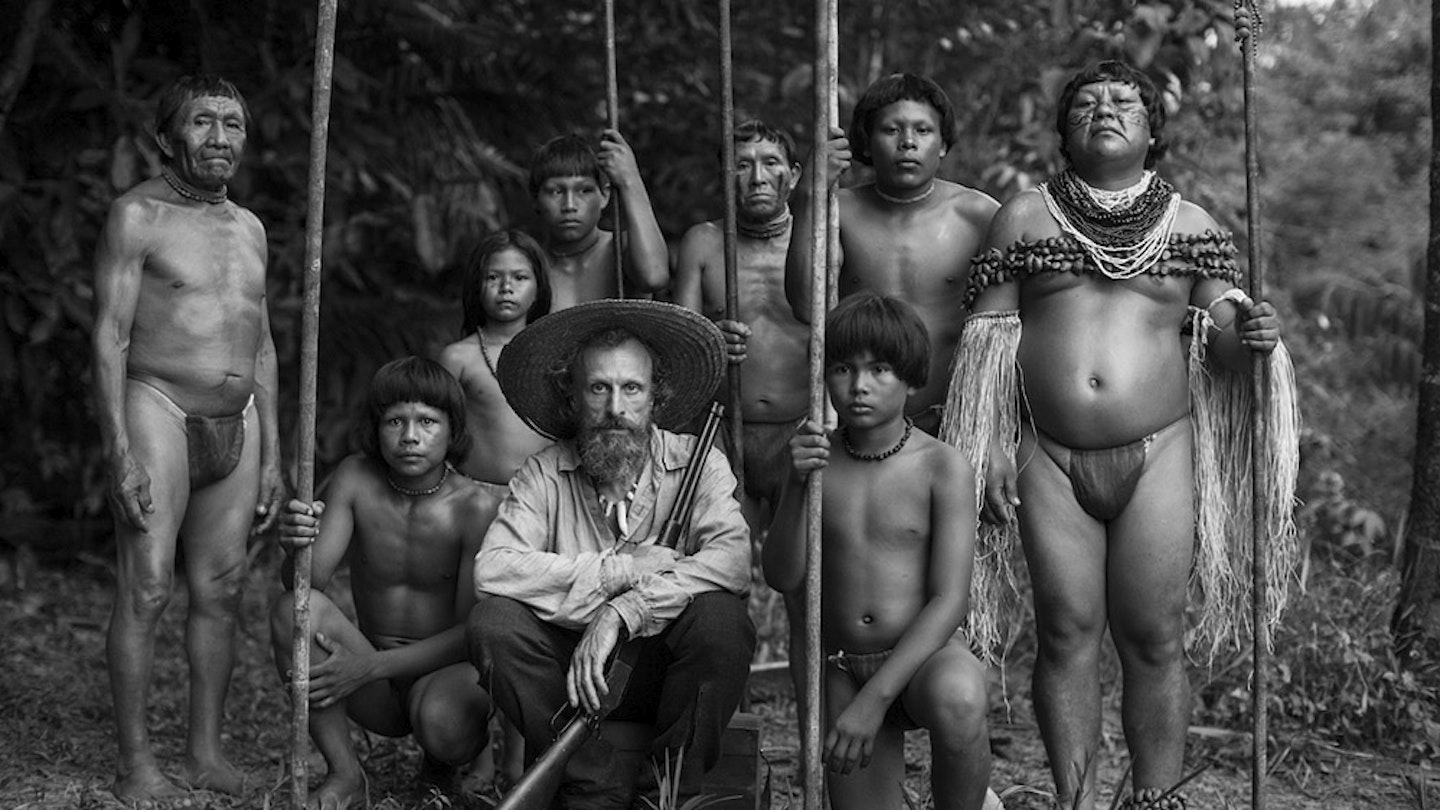Playing like a cinematic rendering of Carlos Castaneda’s psychotropic writings coupled with Joseph Conrad’s Heart Of Darkness (and recalling Apocalypse Now, of course, and also Aguirre: Wrath Of God), this artfully rendered black-and-white Oscar nominee dissolves back and forth between two different tales.
Each story recounts a journey along the Colombian Amazon, four decades apart, as native shaman Karamakate (Nilbio Torres and Antonio Bolívar Salvador) travels with two different German ethnologists, Theo and Evan (Jan Bijvoet and Brionne Davis), in search of a near-mythic hallucinogenic plant.

Snaking upriver, their adventures expose a clutch of shocking episodes — a one-armed man abused by rubber barons who leave him begging for death, a child-whipping priest imbued with a terrifying conviction, a perverted Christ figure who invites his disciples quite literally to eat his flesh, a violent raid on the native populace by Colombian soldiers. Each sequence reveals the horror accompanying civilisation’s bloom.

Inspired by the real-life journals of two explorers — Theodor Koch-Grünberg and Richard Evans Schultes — the film reveals Karamakate’s world vision at two different stages of his life, though these remain united by his understanding of time and man’s place within it. In contrast to the Western view, he perceives time as non-linear, perpetually unfolding in a myriad series of overlapping worlds.
In the first journey with the ailing Theo, Karamakate is at the peak of his powers and rails against the toxic influence of the whites as he reluctantly bids to heal the sick German. In the later journey with Evan, he is spiritually adrift, regarding himself as a chullachaqui, a hollow and empty human facsimile. Finding the Yakruna will make him whole again.
